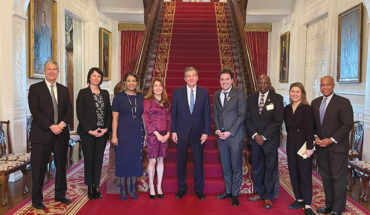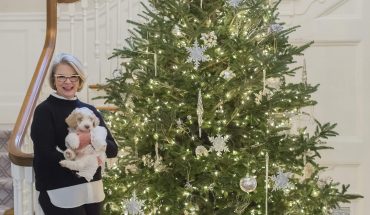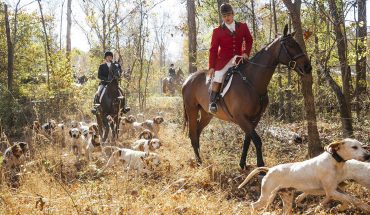by Tina Haver Currin
photographs by Travis Long
A city growing as fast as ours is fueled by ideas, enthusiasm, and investment. A little caffeine doesn’t hurt, either. And now we’ve got it with a lot of local flavor, thanks to a new fleet of local coffee roasters and sellers. For many of these folks, coffee is more than a business, a passion, or a beverage. It’s a community.
That community got its start in the ’90s with pioneers like Raleigh’s Larry’s Beans and Durham’s Counter Culture. Today it’s enjoying a new jolt of energy from entrepreneurs like Mac Cady, Bill Landhal, Joe Bland, and several others.
It was an overdose of technology that brought Mac Cady to the business of coffee.
He knew he’d had enough screen-time when he took a break from his job as a web developer to go for a walk, looked down at a small patch of grass and saw the blades as though they were digital, like a lawn on a screen. Cady was spending hours at a time behind a computer at his job in Research Triangle Park, and wasn’t interacting with anyone.
“The wind was blowing, the grass was moving, and I saw pixels,” Cady remembers. “I went home, and I said, that’s it. I’m done.”
And so, not knowing exactly what he wanted to do next, Cady quit his job. Frustrated and searching for a sense of community, Cady moved his family to California. After stints in L.A. and San Diego, his wife Kim urged him to consider returning here. Cady agreed, but wasn’t optimistic that he’d find what he was looking for. “I had a problem with Raleigh,” Cady says. “I never connected. I felt trapped.”
That all changed when he started roasting coffee.
On January 11, 2014, Cady opened Café de los Muertos, a coffee shop on the ground floor of the Hue building in downtown Raleigh. And with it, he found his community. Raleigh is now home.
The capital’s other coffee start-ups, including Oak City Roasters and Raleigh Coffee Company – which entered the market in 2012 – say the local community of roasters and coffee lovers is vital to their success. And though they’re all passionate about their craft, each aspires to fuel that community beyond a caffeinated cup.

LOCAL FUEL
Lauren Harris works on her laptop at Café de los Muertos, a coffee shop on the ground floor of the Hue building in Raleigh.
Getting started
After he quit his technology job, Cady started visiting coffee shops with his son, Dexter. “This little blonde kid was a great lead-in, and I’d just go and learn things at all of these shops,” Cady says. “I went every day.” Before long, he was roasting his own coffee beans at home and selling his roasts online. The popularity of his online sales prompted a business plan.
It took two years of practice before Cady opened Café de los Muertos, long enough “to get out of a popcorn-popper roaster,” into a four-ounce roaster, and then a one-pound roaster. At Muertos, he now sports a four-and-a-half-pound roaster, which he uses to create the house espresso.
Cady, and his café, have come a long way. In 2012, the space he rented was an empty shell. “There was nothing here, no electrical or plumbing. I had a bulldozer come in to find the sewer lines,” he says. “But as soon as I started building, people would stop by. Business people, lawyers, artists. I started having conversations. Suddenly, I’d see them the next day. Suddenly, I had friends.”
Those friends include Joe Bland of Raleigh Coffee Company and Bill Landahl of Oak City Roasters. Café de los Muertos is one of the only shops in Raleigh to carry coffee from both.
Bill Landahl, a former engineer and now the owner and sole full-time employee of Oak City Roasters, admits that he started backwards. While most people, like Cady, start small – say, in a garage with a few bags of beans and a little bit of know-how – Landahl set up shop in an empty fire station with hundreds of pounds of coffee. In retrospect, it may have been a perfect place to learn: “If you burn the beans, nobody cares about the smoke,” Landahl says with a chuckle.
Like many newborns, Oak City Roasters wasn’t an accident, but it wasn’t quite planned, either. A friend’s father had a coffee farm in Colombia, and Landahl wanted to help him get his product into the United States. It sounded easy, but he couldn’t have been more wrong.
“As it turns out, Fred’s father doesn’t even produce coffee that’s ready for roasting,” Landahl says. “It was still several steps away from becoming the little green beans you see in the burlap sacks.”
Though he didn’t understand the complexities of coffee production at the time, the more he learned, the more hooked he got. Landahl bought a five-pound roaster and spent a year practicing in the fire station before officially opening Oak City Coffee Roasters in 2012. He now works in a small garage on Hargett Street, near Five Star restaurant.
After more than twenty years as an engineer, Landahl approaches roasting coffee the way a designer might solve a problem. Every day, he pours measured quantities of beans into a bright yellow machine and sets them spinning. The roaster, an Ambex, is reminiscent of a giant sewing machine, with a bed for the beans in front. An arm continuously sweeps the circumference of the bed to keep the hot beans moving.
Getting the best flavor from a coffee bean takes geometry and chemistry, so Landahl considers shape, texture, angles, and heat. That’s science, and it’s what he’s used to. It’s what lies beyond the bean that truly interests him.
“Why did I leave my engineering career and start a coffee roasting company? It was just growing inside me to have an impact. I wanted to make a difference in meaningful ways,” he says.
Oak City has already established a direct trade relationship with a coffee farm in Guatemala, which means growers benefit more directly from Landahl’s purchases. Sourcing beans is an intricate process, which often includes several middlemen to bring the coffee to market. Though that may be easier for the purchaser, it means less profit for the farmers who actually grow the coffee.
“It’s easy to buy at market prices and get cheap coffee. What’s not easy it to find a farmer who produces quality coffee and deal with him directly,” Landahl says. “I want to be generous in what I pay to farmers, and make it motivating for them.”
Landahl pays two to three dollars above market prices for his beans. He’s also created meaningful work for adults with developmental disorders here in Raleigh, who help fill, seal, label and package single-serving coffee pods.
Coffee – at least, the literal interpretation of it – isn’t necessarily his passion, and Landahl openly admits he’s not the best roaster around. “I was really looking for a tool to change the world,” he says. “It almost could have been anything, actually. But coffee, as it turns out, is the world’s most shared connection.”

COFFEE CONNECTIONS
Bill Landahl left his engineering career to start Oak City Roasters on Hargett Street in Raleigh. He says he wanted to make an impact on his community, and discovered coffee is “the world’s most shared connection.”

BEAN COUNTER
Chris Herrin, director of operations at Raleigh Coffee Company, roasts coffee beans to be packaged for retail sale.
Energy-giving
Joe Bland of Raleigh Coffee Company agrees with Landahl that coffee is a great connector. “I’ve always loved coffee. I think the energy it gives us inspires us to go out and do things. You can take a marketable product and do social good with that product. I’ve always wondered why more large companies weren’t doing the same thing.”
Raleigh Coffee Company is located in a bustling shopping center off of Falls of Neuse Road. It’s tucked away in the right-hand corner of a gourmet market, down a long and unassuming hallway that’s painted light green. There’s no sign; instead, a small barrel covered in burlap offers up a few bags of coffee.
Bland, who sports his own Raleigh Coffee Company t-shirt and a gray wool cap, flits around the room energetically. He reaches into a tall sack and pulls out a handful of beans, which fall between his fingers like large grains of sand. Certain varieties are uniform and rounded, he explains, and look as though they belong in a pill bottle. In contrast, a Nicaraguan bean that Bland recently received is larger and flatter, with rough edges and no uniform shape.
That inconsistent shape often means an inconsistent roast, so Bland tests every new batch of beans to check for quality and flavor.
“When I get a new bean, I do a sample roast. It’s a very small batch with very minimum heat applied to the bean, just to see what natural traits it has to offer,” he says. “Is it fruity, is it earthy, is it plain? Is it sweet? Then I figure out what I can do bring out different flavors, different complexities.”
Raleigh Coffee Company has leveraged its ability to create custom roasts to involve the community. Last year, Bland partnered with Love Wins Ministries to create a special Valentine’s Day coffee, and $5 from every bag went to Love Wins.
“Let’s all work together. Let’s have fun together,” says Bland, a giant smile creeping across his face. “That’s the concept that Café de los Muertos is going after, and it’s going to be successful because of that. I like the community, and having these other roasters to collaborate with. Let’s build each other up.”
At Café de los Muertos, Mac Cady feels the same way.
“I finally got it. I finally figured out Raleigh,” says Cady. “If you have an idea about something like coffee roasting, you can have a conversation with people you respect and figure out if it will work conceptually. And then, you can take that idea to another group and see if it will work financially,” he says. “I didn’t know that world a few months ago, but now, I can’t image a better place to be. Really, the true definition of Raleigh is community.”
Local trailblazers
The Raleigh coffee renaissance has been twenty years in the making. Raleigh’s Larry Larson got hooked on coffee while attending the University of Puget Sound in Seattle, and he quickly put his economics degree to work after graduation.
Larson opened Raleigh’s original coffee roaster, Larry’s Beans, in 1994. Founded on the principals of fair trade, Larson sources his coffee from farmers in Africa, Indonesia, and the Americas, and pays them a sustainable wage. Those beans are then slow-roasted in small batches to ensure consistent quality and flavor. The more Larson learned about sustainable business practices in coffee, the more he applied them to his own efforts at home. All of Larry’s coffee is organic and roasted in a facility powered by renewable resources, like sunlight and rainwater.
Durham’s Counter Culture Coffee followed shortly thereafter, founded in 1995 by Brett Smith and Fred Houk. Dissatisfied with the limitations of fair trade, Counter Culture partnered with Chicago’s Intelligentsia Coffee & Tea to create its own “direct trade” model, a form of coffee sourcing that promotes equitable trading conditions and increased participation along each step of the coffee’s production.
By partnering with farmers at the coffee’s origin and paying the farmers directly, Counter Culture supports increased sustainability. Those partnerships also allow Counter Culture access to rare, high-quality beans, some grown in small lots specifically for the company. But great beans don’t automatically mean great coffee, so Counter Culture also provides educational programs on brewing and seasonality in each of their eight national training centers.
Raleigh’s burgeoning coffee scene isn’t limited to local roasters. Over the last year, there’s been an uptick in coffee shops that push the boundaries of what we know and expect of our cafés. The Morning Times and Café Helios have long held down the fort in downtown Raleigh, but these shops offer a little something more. Give one of them a try the next time you’re looking to catch your morning – or, in some cases, afternoon – buzz.
Jubala Coffee in North Raleigh’s Lafayette Village uses Counter Culture beans and takes its mission to serve top-quality coffee with a connoisseur’s attention to detail seriously. With national award-winning baristas and an extensive menu of brews, biscuits, waffles, and sandwiches, it’s a coffee-lover’s haven.
Lamplighter Coffee, based in Richmond, Virginia, is now available in Raleigh. The roastery has been operational since 2009, and the flagship store in Virginia always seems to have a line that snakes out the door. You can get a taste of Lamplighter at Yellow Dog Bakery in Person Street Plaza, where a small espresso bar and a vat of hot (and iced) coffee are always available. Yellow Dog, which was opened in September of 2013 by Matt and Tanya Andrews, also offers freshly baked breads, jams and butters, and oh-so-sweet pastries. Tip: The shop is closed on Sundays.
If Sunday’s the day you need your joe, head a few blocks over to Weekend (above). For the last two years, Jenny Bonchak has sold her cold brew under the brand Slingshot Coffee Company. Now, Jenny and her husband, Jonathan Bonchak, have hung out the shingle at 1420 N. Brookside Drive. As the name implies, Weekend is only open on Saturdays and Sundays from 8 a.m. until 2 p.m., and offers a limited menu of pour-overs, Cascara tea, and, of course, Slingshot. The duo remains allegiant to Durham’s Counter Culture Coffee, where Jonathan works on the regional sales team. Winner of the Southeastern Brewer’s Cup two years running, Jonathan brews each of the shop’s pour-overs by hand. But if he’s not around, don’t worry; Jenny’s gunning for the title this year.
If you’ve always dreamed of a place where you could get a coffee and a beer, there’s Brew, which opened in Seaboard Station this October. A.J. Viola cut his teeth at Raleigh Coffee Company, roasting beans alongside Joe Bland before opening Brew with co-owner Mike Sholar. Raleigh Coffee Company supplies the shop’s principal offerings, but each month, the café features a guest roaster. The shop’s two beer taps also rotate monthly. Both the coffee and the beer are sourced from North Carolina, as is as the art inside the shop — which, you guessed it, rotates frequently.
And then there’s Joule, chef Ashley Christensen’s coffee venture that opened to much pomp in September of 2013. In addition to an extensive coffee selection provided by Counter Culture (the shop offers its own coffee menu), there’s food service all day and coffee-inspired cocktails at night. The restaurant, which is perched on Wilmington Street between the Busy Bee and the CAT station, also offers a popular weekend brunch. Brunch often requires a wait, so ask about the grab-and-go baked goods — like sorghum-butter biscuits and flaky croissants — if you’re in a hurry.






